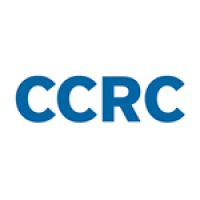By Roy Bond, Maria Cormier, and Julia Raufman
Prior to the COVID-19 pandemic, demographic and labor-market data showed shrinking labor force participation and a growing number of unfilled middle-skill jobs. Those shifts prompted many community colleges to restructure and diversify courses and program offerings to encourage completion through shorter-term credentials and thus graduate more job-ready students.
Over the past several years, a dynamic group of higher education professionals from across the country came together to look at ways to meet the need for middle-skill training through closer alignment of credit and noncredit programs. This group, the Community College Workforce Development Cohort—made up of 13 community colleges and funded by a multi-year grant from the Capital One Foundation—developed an array of initiatives that more fully integrated noncredit programs into their institutions, thereby shortening the time needed to complete certifications, certificates, and degrees. In doing this work, we discovered the value of collecting and using data, breaking down organizational silos, and partnering with community and business organizations to work toward a common goal. Together, we aimed to train, reskill, and upskill members of our community to fill middle-skill jobs through traditional and non-traditional programs.
The economic fallout from COVID-19 reinforces the need for stronger integration between credit and noncredit workforce programming; students must be able to access short-term, high-quality, low-cost, and virtually delivered skills-based training programs that lead directly to living-wage careers. In recent months, many local economies have shed jobs, and among the hardest hit have been community college students who tend to work retail and restaurant jobs while they are attending school. Students and displaced workers need help from community colleges like never before. Whether they are temporarily or permanently displaced, many students cannot afford to wait two years to complete a degree to get a sustainable living-wage job.
Although noncredit programs are typically flexible and nimble, they tend to have limited funding for advising, student tracking, and other supports that promote student retention and completion. Noncredit and continuing education students are rarely provided college IDs and therefore cannot access some campus facilities, such as the library and cafeteria. Nor are they assigned a campus email address.
These supports are all the more critical as colleges move instructional delivery and services online, which many community colleges continue to struggle with. Recent experiences of the Capital One cohort, however, reveal some unexpected benefits of the move online for credit/noncredit alignment and student supports. Over the past several months, colleges have noted that the shift to online learning and service delivery has pushed them to provide noncredit students access to college resources and supports in a way that was not common before. One college that moved online gave noncredit students campus email addresses, which allowed them to fully access campus information and resources. Other colleges quickly discovered that student support staff could be just as effective (and in some cases, more effective) working remotely and began extending those services to students enrolled in noncredit courses. At another college, student services staff began helping to connect students to community resources and to make sure they could continue their studies in a remote environment. In these and other ways, the shift to online learning and service delivery has helped break down some of the silos between credit and noncredit workforce divisions.
This past January, Neil Peart—the legendary drummer for the genre-defying band Rush—passed away. The Professor, as he was called, used to speak frequently about the transformative, magical moment when “preparation meets opportunity,” and when all the hard work results in what appears to be an effortless solution. Of course, he was determining the precise drum fills to fit a particular musical composition, but it is clear that for him the concept had significantly broader philosophical application. The Capital One cohort colleges’ experiences during the current crisis suggest that aligning and streamlining programs and services, listening and responding to the needs of employers, and addressing the holistic needs of our students has prepared us to meet the opportunity that has been forced upon us by the COVID-19 pandemic. As new challenges and uncertainty arise, we must hope we have prepared enough.
Roy Bond is the executive director of workforce operations at Dallas College. Maria Cormier is a senior research associate and Julia Raufman is a research associate at CCRC.






